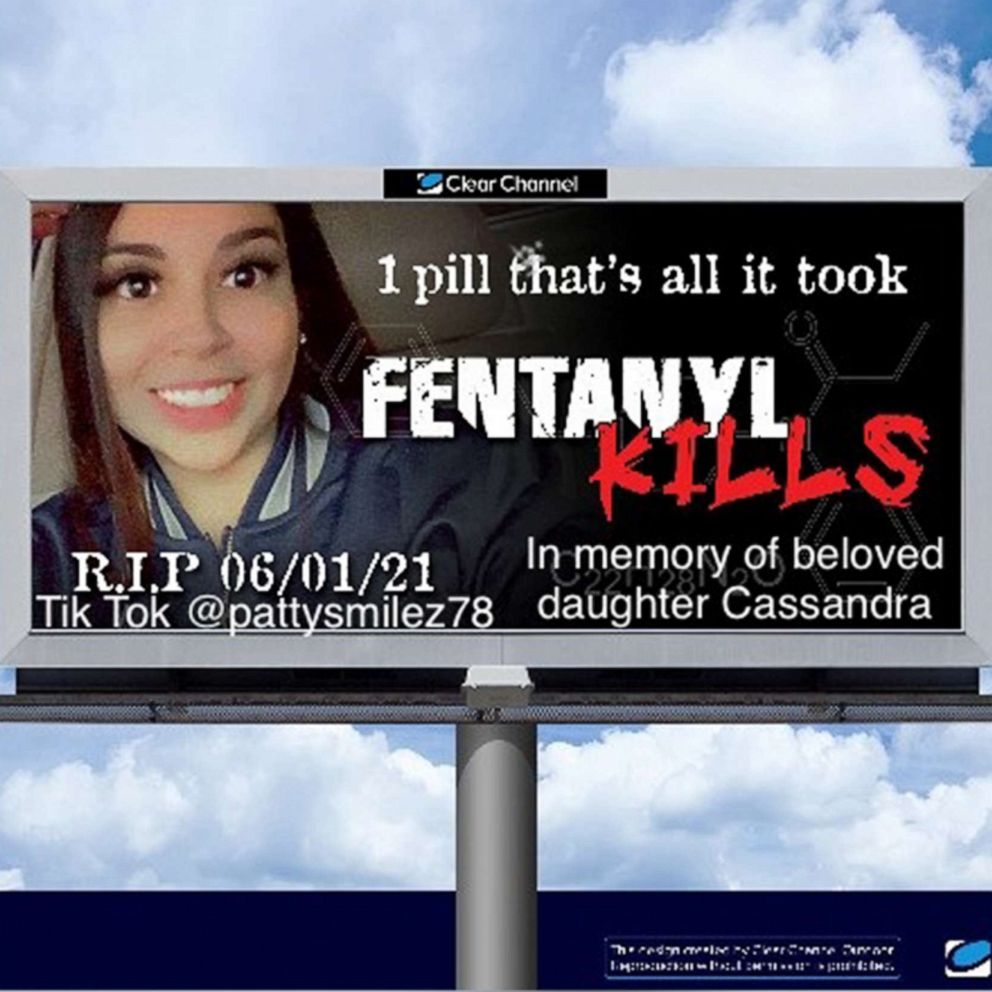Parents whose kids died due to drug overdoses allege Snapchat enables drug dealers
Amy Neville's son was 14 when he died after taking a fentanyl-laced pill.
Samuel Chapman and Laura Berman's son, Sammy, was 16 years old and a junior in high school when he died in 2021 after overdosing on a fentanyl-laced pill, according to Chapman, from a person he allegedly met on Snapchat.
Amy Neville's son, Alexander, was 14 years old and preparing for his freshman year of high school when he died in 2020 after taking a fentanyl-laced oxycodone pill that he allegedly obtained from a person he met on Snapchat, according to Neville.
On Wednesday, Neville, Berman and Chapman will be at the Los Angeles Superior Courthouse, where a hearing will be held in a lawsuit that they and dozens of others of parents have filed against Snap Inc., the parent company of Snapchat, alleging the social media platform enables drug dealers in reaching minors and young adults.
At the hearing, a judge will decide whether the parents' lawsuit against Snap Inc., Neville et al v. Snap Inc., can move forward or the company's motion to dismiss the lawsuit will be granted.
"Kids are losing their lives, and they swept it under the rug. They had their chance to do the right thing, and they chose profits over people," Neville told "Good Morning America," referring to Snapchat. "The way that we are going to bring Snapchat and other social media companies to the table, is through lawsuits and legislation. That is plain and simple."

The Neville lawsuit, first filed in October 2022, now includes over 60 parents of children who allegedly obtained illegal drugs through Snapchat. The child died after ingesting the drugs in all but two cases.
Some of Snapchat's features that set it apart from other apps -- like automatically deleted messages, geolocation functionality and the My Eyes Only privacy feature -- make illegal activities harder to track and are especially attractive to drug dealers, the lawsuit alleges.
The lawsuit alleges that "Snap and Snapchat’s role in illicit drug sales to teens was the foreseeable result of the designs, structures, and policies Snap chose to implement to increase its revenues," according to court filings shared by the Social Media Victims Law Center, which is representing the families in the lawsuit.
"[Snapchat] is not the most popular platform among young people, but it is uniquely set up to facilitate and provide advantages that other platforms don't have to drug dealers," Matthew Bergman, a founding attorney of the Social Media Victims Law Center, told "GMA." "And that's why we are trying to use this lawsuit to force them to take responsibility and make their platform safer for our kids."
In Neville's case, she said she and her husband thought they had prepared themselves and their son for the use of social media. She said they had open conversations with Alexander, checked and had access to his social media accounts and turned off internet access in their home at night.
When Alexander told his parents in June 2020 that he had become addicted to oxycodone after obtaining it on Snapchat, Neville said they arranged for him to go to a drug treatment center. The day after that conversation with Alexander, he passed away, according to Neville.
"About 9 o'clock, he came home, we said good night and that was literally the last time I saw him alive," she said. "Sometime after 9 o'clock, he took the pill that took his life. His death blindsided us. That's how we learned about fentanyl."

Neville said at the time, she had no idea that her son could have been exposed to drugs on a social media app.
"No one was talking about drugs on Snapchat at that time," she said. "We've been told by these social media companies to look out for bullies and look out for sexual predators, and so those are really the things that I was looking for when I looked at his accounts."
Chapman too said he and his wife, Berman, a nationally-known relationship and sex expert, did not know that their son Sammy could obtain drugs on an app like Snapchat.
"When Sammy died, we had no idea that Snapchat was a dangerous platform," Chapman told "GMA." "We now believe putting your kid on Snapchat is like dropping him off in the most dangerous, drug-filled neighborhood and hoping he does well for himself. There are all sorts of things that are happening there. We didn't know."

Chapman said he believes the lawsuit against Snap Inc., is the most effective way to prevent other families from experiencing a tragedy similar to the loss of his son as Neville et al v. Snap Inc., is a product liability lawsuit, one of the first of its kind against the company, according to Chapman.
"There is nothing worse than a product can do to its user than kill that user, and that is what is happening," he said. "We are not saying that [Snap Inc.] is responsible for what the drug dealer is saying. What we're saying is they're responsible for the algorithms that led the drug dealer to our son, and these algorithms every day are putting in touch people who should not be in touch with our kids."

Chapman said that his hope is that Snapchat would disable algorithms for kids on the platform, including the geolocation functionality.
Neville too said she sees the lawsuit against Snap Inc., as an extension of her own mission to make sure other families don't continue to experience the same tragedy. Since her son's death, Neville has also launched a nonprofit organization, the Alexander Neville Foundation, to help educate other parents about the drug crisis and about social media.
"It's just not okay," she said. "I wish there was a magic way to fix it instantly, and I feel like there probably is. I'm sure the social media companies know how to fix it."
Snap Inc., declined to comment on the lawsuit or Wednesday's hearing, citing the fact that it is active litigation. A spokesperson for Snap Inc. told "GMA" in a statement the company uses "cutting-edge technology" in trying to keep users safe.
“It is devastating that the national fentanyl epidemic has taken the lives of so many people and we have great empathy for families who have suffered unimaginable losses," the spokesperson said. "At Snap, we are working hard to stop dealers from abusing our platform and to raise awareness with Snapchatters and parents about the dangers of fentanyl."
"We use cutting-edge technology to help us proactively find and remove drug content and accounts. We block search results for drug-related terms, redirecting Snapchatters to educational resources from experts," the spokesperson continued. "Working with parent groups and safety experts, we created Family Center to allow parents more visibility into how their teens are using Snapchat. We continually expand our support for law enforcement investigations helping them bring dealers to justice, and we work closely with experts to share patterns of dealers' activities across tech platforms to more quickly identify and stop illegal behavior."
Last year, Snapchat partnered with Meta and Google and the Ad Council on a public awareness campaign about fentanyl.
In May, on National Fentanyl Awareness Day, the company also announced the launch of a public service announcement in the app to "share key facts about fentanyl with young people on Snapchat."







